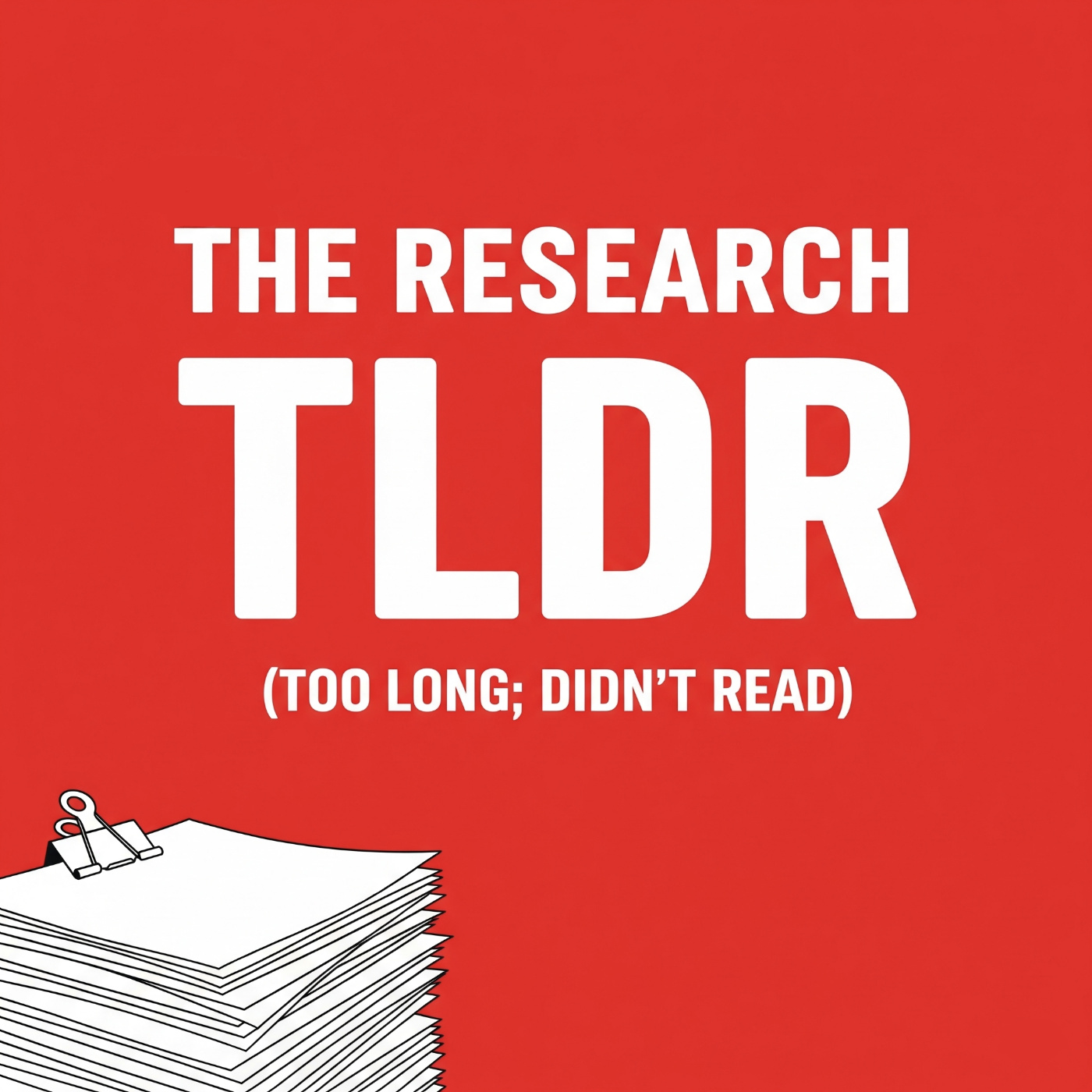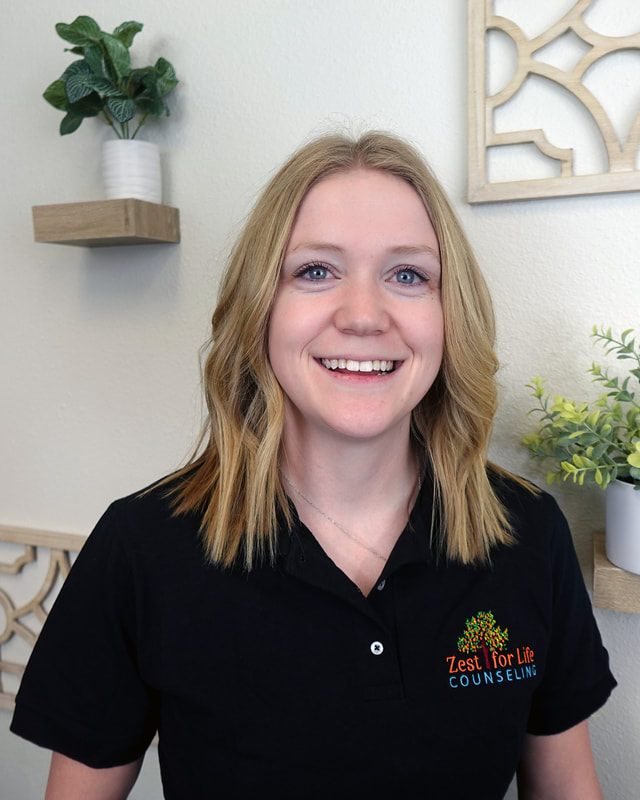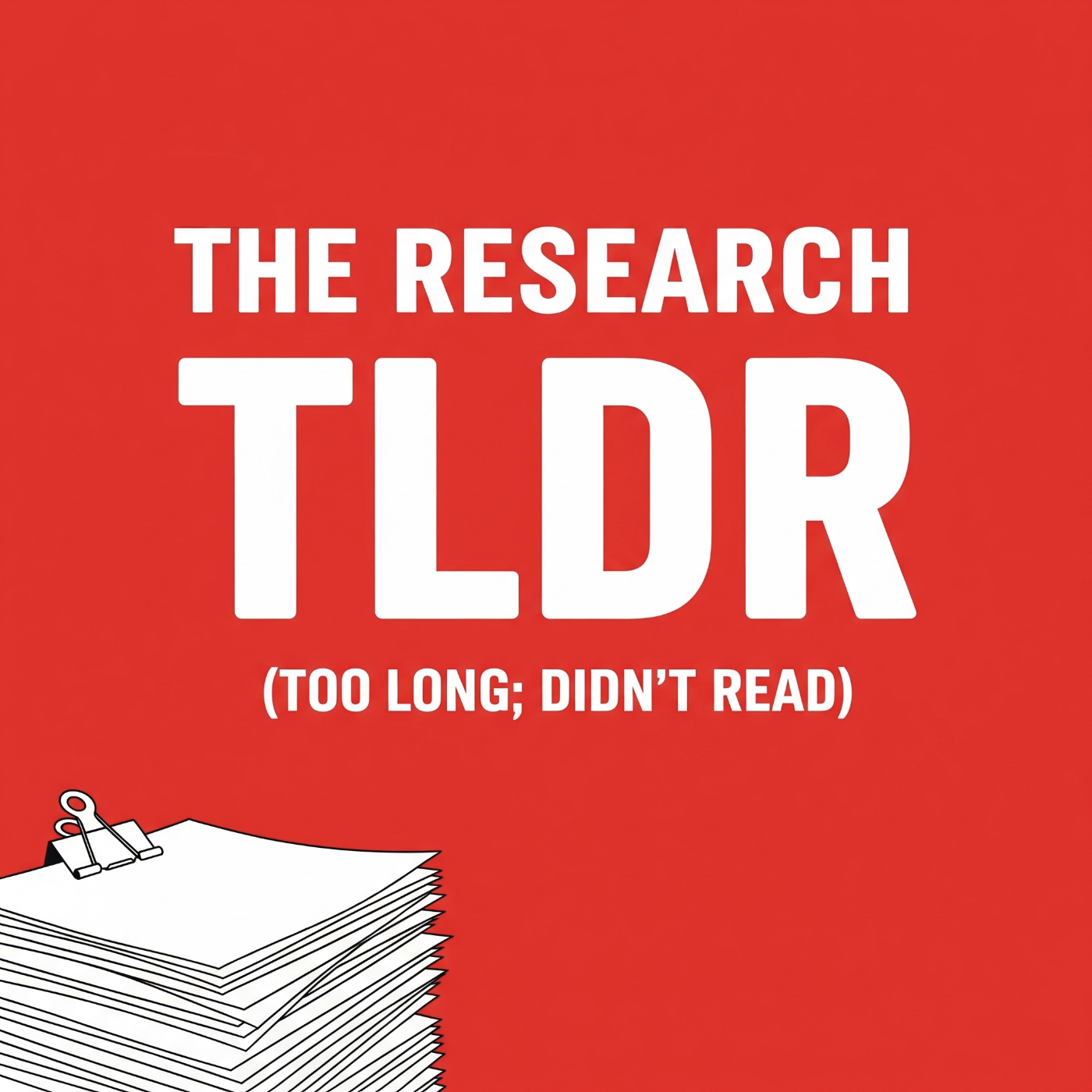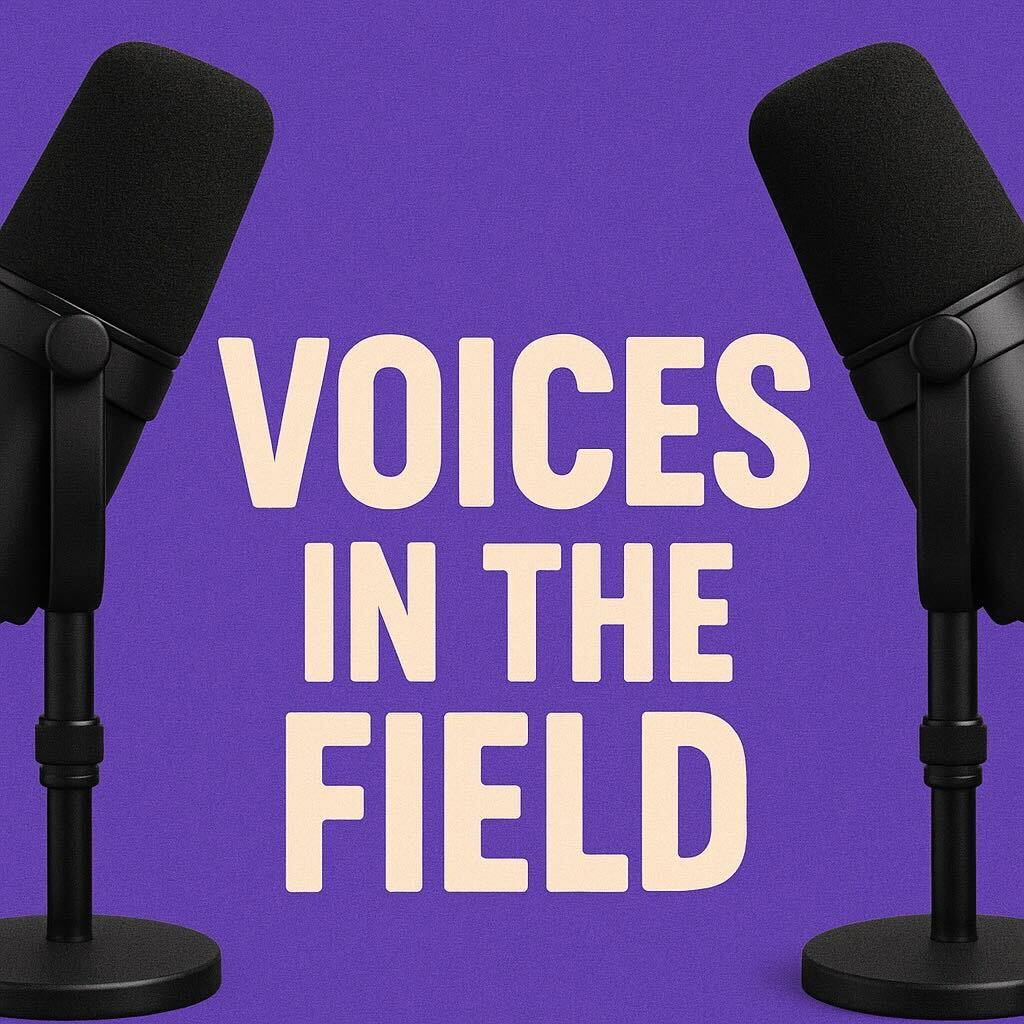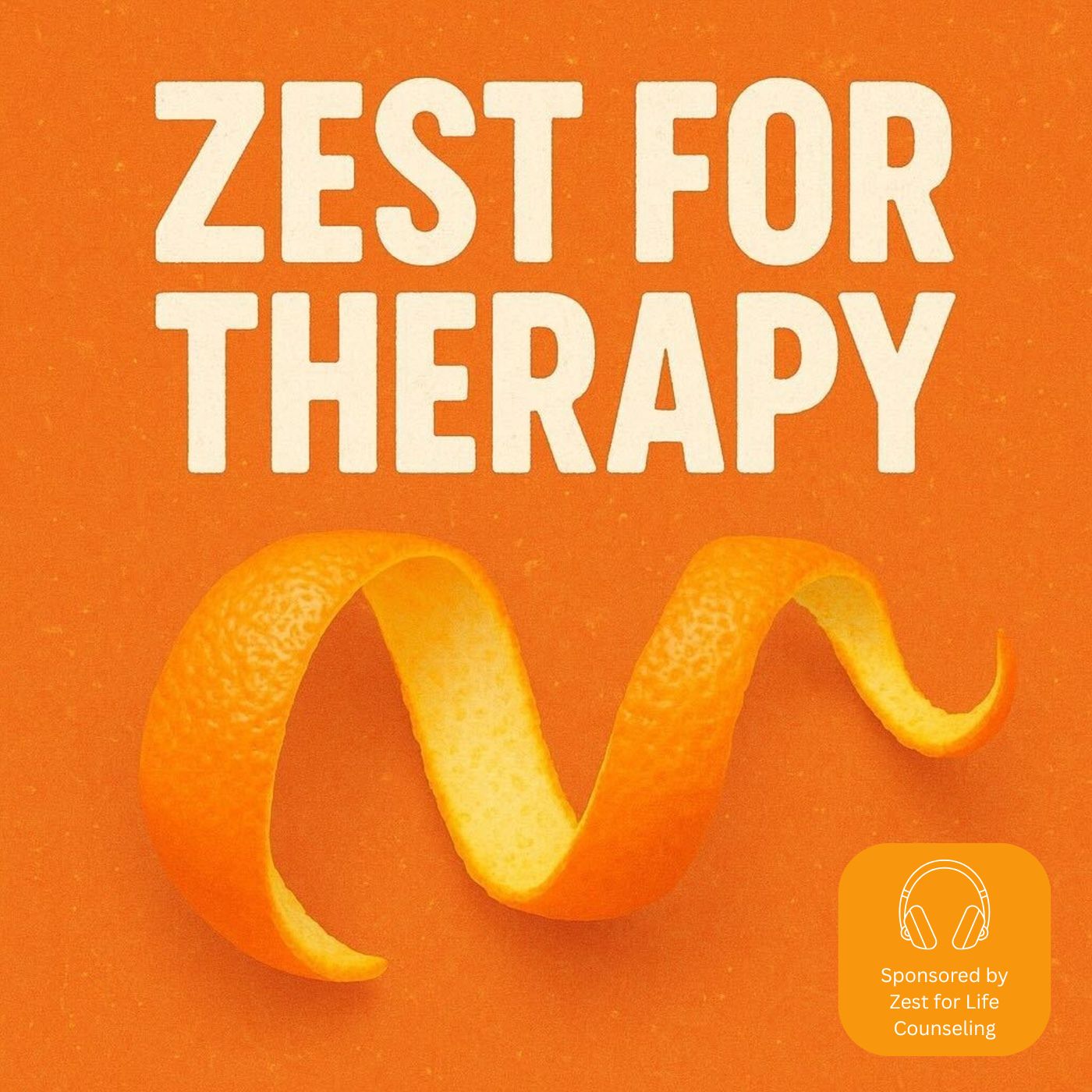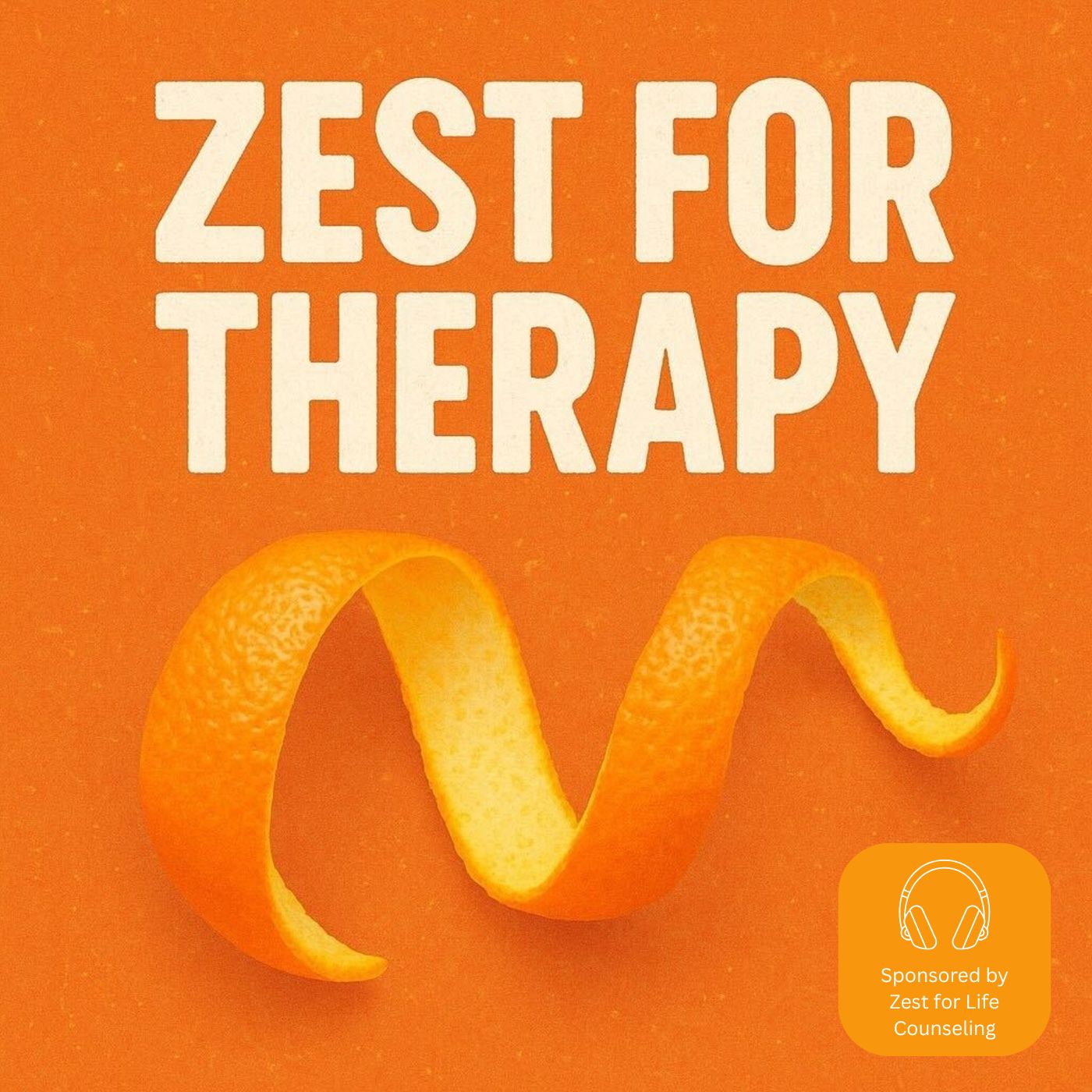Episode Transcript
[00:00:00] Speaker A: Foreign.
[00:00:14] Speaker B: Welcome back to the Zest for Therapy podcast. We are your hosts, Cole Childers, Courtney Doman and Celeste Webster, back with another episode of the Research TLDR where we dive into the most recent research about different issues in the practice of therapy, including diagnoses and presenting problems and self of the therapist issues. Our topic today is ethical gray areas in therapy where things aren't always so black and white.
[00:00:37] Speaker A: While we are therapists, we are not your therapist. This podcast is intended for information and entertainment purposes only. It does not constitute therapy, clinical supervision, or medical advice. Opinions expressed are our own and subject to change as research evolves. We do our best, but we are human and that means we may make mistakes.
[00:00:55] Speaker C: Okay, cool. Get us started. Why is exploring ethical gray areas important for us to talk about on the podcast?
[00:01:01] Speaker B: Honestly, because nobody talks about them enough. In grad school we get very clear cut codes and case studies. But then you're in the field and you're suddenly stuck in the in between. Your client brings you a gift or you see them at your kid's school or they disclose something just vague enough that you're not sure if it's reportable or not. So the rules are rarely as clear as we'd like to. And the research back this up. Ethical ambiguity is one of the leading stressors for early career clinicians.
[00:01:26] Speaker A: Yeah. And ethical dilemmas are so common. And sometimes it's not just about avoiding the wrong decision, but about making the best decision with your clinical judgment. I think sometimes we get stuck because we want to make the right decision and we don't know what that is like. We want to do right by our clients, uphold our values, follow the law and the code of ethics. But sometimes those things don't always align. And that internal conflict is called ethical dissonance. And these situations in general are called ethical dilemmas. And they can lead to burnout, avoidance, stress, and even moral injury over time.
[00:02:00] Speaker C: Definitely a lot to balance, for sure.
So let's talk examples. So what are some common ethical gray areas that we see in practice?
[00:02:07] Speaker B: Yeah, so I want to hear both of your opinions on this. So I had a coworker that had the situation. They explained to me. So they had a very first session with a client, a client that had requested specifically to see this clinician because they found them on Psychology Today and they liked their profile, thought they'd be a good match.
And in the middle of the session, when coworker was collecting this information, they found out that they lived at the same apartment complex.
And so what My co worker did was they stopped in the middle of the session and they were like, hey, just so you know, I live here too. Are you comfortable with me treating you? But it brought up some other questions as well. Like, well, how big is this complex? Is it one building, is it a few buildings or a lot over the span of a couple acres. Have you seen them before?
Is there a common space like a clubhouse or a pool or a gym that you guys might see each other at if you, either of you go to it regularly?
[00:03:06] Speaker A: Right?
[00:03:06] Speaker B: Like what, what do you do in this situation?
What do you guys think?
[00:03:11] Speaker C: Yeah, I think that is definitely good question. I would definitely bring that to supervision and just ask my supervisor, like, okay, so this is the situation. What do I do? Like, because I would be questioning. That's definitely an ethical gray area for sure.
[00:03:27] Speaker A: Yeah, I think that one's also tricky because of the self disclosure. Like our clients have the right to know when there's a potential like dual relationship or multip relationships. And sometimes that means we have to self disclose for the benefit of our clients.
Not always, obviously, but the AMFT Code of ethics explains that marriage and family therapists are aware of their influence and therefore make every effort to avoid conditions and multiple relationships where that could impair a professional judgment or increase the risk of exploitation.
So close personal relationships with a client or immediate family member or business relationships, we would want to avoid those. And like we document the appropriate precautions taken. So I think this is definitely a scenario where you know, that client, like if they saw that person, like, oh my gosh, like we live at the same place. But also for the therapist sake to be like, you know, let's get this out here, let's talk about this, let's document it. And if both parties are okay with that, that's, you know, a great example of how to handle that ethical situation.
[00:04:32] Speaker B: Right, I like that a lot. And yeah, this, the situation didn't occur in a small community, but when we think of smaller communities or marginalized populations, it's really nearly impossible to avoid situations like this. And so you will probably see your client at the grocery store town events, maybe where you go to church. And so the APA and the NASW codes both acknowledge that not all dual relationships are inherently unethical.
But they don't specify. So the question is, does it risk, harm or impair your clinical judgment?
[00:05:07] Speaker C: Yeah. And sometimes the disclosure itself can be an ethical drama. How much disclosure is too much? How much do you say? The NSW Code of Ethics says to use professional judgment, but what does that Mean there's ambiguity there too. So how do you weigh your clients needs, your intention and potential unintended outcomes? Another ethical dilemma is we have the issue of cultural values versus ethical codes. For example, some cultures consider family involvement essential to mental health care, while our guidelines around confidentiality and individual digital autonomy can sometimes clash with that. There's no easy answer. It becomes less about right or wrong kind of what Courtney was saying and more about navigating nuance.
[00:05:48] Speaker A: And actually, Celeste, to that point, there was a study in 2022 by NAP. It surveyed like 400 clinicians and found very similar to what you were saying. Like the top three ethical gray areas that therapists were struggling with were navigating client autonomy when safety is a concern, which I think is a very important one, handling cultural differences around disclosure and family involvement, and setting boundaries with high risk or trauma clients.
And this isn't just like random, obviously looking at this like this is client presentations that we see every day.
[00:06:23] Speaker B: So true. Yeah. And when we talk about the ones we see every day as well, it's like the ethical decisions we have to make when it comes to digital use in therapy. So texting, social media, telehealth, boundaries. The pandemic blew open the digital door and left a lot of ethical protocols scrambling to catch up. It's like, what do you do if a client DMS you if they find you on social media, tag you in a post? Or like AI? Are we using AI to help craft a treatment plan? Where do we draw the line with that? Where do we draw the line on things that the misinformation that might come from AI, Know what I mean?
[00:06:58] Speaker A: I have some thoughts on that.
[00:07:00] Speaker C: Yeah. It's a whole mixed bag.
Yeah. All this adds up to just a lot of decision fatigue, second guessing.
There's even shame when we make the best bad choice because sometimes that's what it feels like. And still feeling uneasy. That's where I think supervision and consultation is super important. Honestly, just asking those that you work with what they think and go into your code of ethics and this can help us to keep ethical considerations in mind.
[00:07:30] Speaker A: And I think to that point, like consult, consult, consult. Like if you are under supervision, ask your supervisors, especially when you're in training, and consult appropriately with your co workers. And if you're still struggling to come up with a direction, then like, you know, go to your code of ethics. Maybe you should have done that first, but you know, should. But if you're still struggling after that, like you can use something like an ethical decision making model. Like the. For model F O R E.
And the first one is facts. Like, what are the key details of the situation? What are your options? What are the risks? What are the ethics that apply to this situation? Like with Cole's example, Like, what are the facts? Like somebody friends you on Facebook. The fact is that's your client. The options are you can do nothing with it, you can delete it, you can accept it. What are the potential risks if you accept it, There's a risk of people finding out, figuring out that you're somehow connected to that client, potentially breaking their confidentiality. Another risk is, you know, creating more of a dual relationship. And what are the ethics? So the ethics say to avoid multiple relationships at all costs, that we maintain client confidentiality. And so in that scenario, that's a place where I'd be like, nope, like, my ethical consideration is much more important than potentially, you know, having an awkward conversation about why I can't accept their friend request there.
[00:08:56] Speaker B: Right. Yeah. When we understand the responses we can have to clients or the tools in our toolbox, that sets us up for success instead of being presented with an issue in the moment and having to potentially make a decision when you're not even sure of your own boundaries.
[00:09:12] Speaker A: Right. And I think too, like, there's so much nuance in, like, having that conversation. I think when you explain it, a lot of clients are super okay with it. They're like, oh, I didn't even think about that. That makes sense.
At least that's been my experience.
[00:09:28] Speaker C: Yeah, it's so much easier to front load it than to, like, have the awkward conversation after the fact. Like, so actually take it back.
You can't do that or like, make it. It just makes a really awkward situation.
[00:09:40] Speaker B: For sure. Yeah, I love that. Yeah. That's why I keep a list of my non negotiables in sessions. Like, and when it comes to ethics, keep the ones that I can even count on my own fingers. Like, do no harm, avoid secrets, stay transparent with your clients, center on the client's safety and dignity. And then when I'm stuck or presented with a situation, I can ask which choice upholds these values best, even if it's not like the cleanest answer.
[00:10:09] Speaker C: Yeah, that's definitely the NASW code of ethics. All the headers, pretty much.
[00:10:12] Speaker B: Right.
[00:10:13] Speaker C: So let's talk about what we want other clinicians to. To take away from this. So ethical gray areas aren't a sign you're doing therapy wrong. They're proof that you're doing it deeply. But you don't have to sit in that ambiguity alone. Supervision, like we've been talking about in consultation and peer support are game changers.
[00:10:31] Speaker A: Exactly. Like, for example, if you're working and your client tries to give you a gift, a lot of times clients are just trying to give you something back. Or maybe they just really value gift giving on the holidays or things like that. And that doesn't mean that you did anything wrong because your client wants to give you a gift. I think sometimes that means you did something right because the person appreciates something about the therapeutic process so much that they would be that they would want to give you something like that. But there are a lot of times that accepting gifts are not appropriate.
[00:11:03] Speaker B: Right. And yeah, thankfully, at least for the nasw, the Code of Ethics has a section on this. But still there's gray area behind it. So what it says is social workers should avoid accepting gifts that could create conflicts of interest, exploit clients, or compromise professional boundaries. While some small, thoughtful gifts from clients may be acceptable, especially when they're an authentic expression of gratitude and don't negatively impact the client social worker relationship, social workers should carefully consider the implications of accepting any gift. So it doesn't cover every situation, but it gives a general outline.
[00:11:35] Speaker A: Right? And the AAMFT Code of Ethics is pretty similar. Like marriage and family therapists attend to cultural norms when considering whether to accept gifts or give gifts to clients. Marriage and family therapists consider the potential effects that receiving or giving gifts may have on clients and the integrity and the efficacy of the therapeutic relationship. A good rule of thumb that I, I learned in grad school is like, the cost of the gift and again, how that would impact their relationship. Are they giving you something that's a financial burden for them? Are they giving you something that you would feel uncomfortable giving a friend or somebody that you really weren't that close with?
I think there's so many things to consider and I very much rule on, on the side of I'd rather have that awkward conversation than create a strain on the therapeutic relationship. So sometimes like, that might create, you know, if you did accept a gift and there was, you know, more feelings behind it, or maybe they were intending something else with giving you that gift, it might create resentment or lead to further expectation of exchange outside of the therapeutic relationship. And so I think those two, like, cost and how would this impact the relationship? If it's a card and, you know, it's just like, thank you so much for, you know, being my therapist and they don't sign it, it's like, awesome, Give me that card. Like I love it. No easy, breezy, beautiful, ever girl.
But outside of that, like thinking about, okay, how can I protect my client myself in this relationship?
[00:13:05] Speaker C: Right? Yeah. Like if a hundred dollars falls out of that card maybe, right? Yeah, maybe. That's another question for sure. And gifts happen so often, honestly, because you know, Christmas, all those fun holidays that come around that people just want to celebrate with you. Another one that's pretty common is release of information situations. So this is when, for an example, like working with a client who maybe just turned 18 or is almost turning 18. Right. So once they're 18, they are legal adults and entitled to full confidentiality and decision making power. So even if the parents are still financially supporting them, like paying for the therapy, this parent comes in and wants to know information about the client perhaps. And this can't be disclosed without a release of information that's signed. The ethical gray area really comes in when they aren't quite 18, but still seeking more independence and privacy. So where's the line of disclosure to the parents? Is this the same as mandatory reporting? So you'd only tell them the stuff that you know, like self harm or like suicidal ideation or like where's the line? There's, there's a lot of gray.
[00:14:07] Speaker A: Yeah, this one's so tricky, especially like before they turn 18, because as soon as they turn 18, you have them sign all new informed consent, all new practice policies, all new everything.
And, and at that point like the parent would have no legal access to that information without a current signed release of information. Like you were saying, at least when I was preparing for my national exam, there was a very similar question to this of like, okay, how much do you disclose to parents? And there is a consideration of, yes, like the parents do have access to that because they are like the, the legal guardian if they are the legal guardian, if they are the ones consenting to treatment on behalf of, of the minor. And it really does depend on what state you're in. Sometimes there are other age requirements other than 18.
But in addition to just maybe they're a minor and the parents do have access, there's the consideration of is that going to harm the therapeutic alliance? Is that going to harm the therapeutic relationship? When you do have the right to say, like I'm, you know, for the benefit of, of this process, I'm not going to disclose everything to you.
In fact, when I work with minors, anybody who's under 18, I explain that, that my approach to working with minors is that I will maintain their Privacy that I won't go behind child's back to share information with the parent and that what I would communicate to the parent or facilitate a conversation around is anything that would be of risk.
And so I think it's having some of those good things in place, just having those conversations. If the parent is like, tell me everything. Like, hey, like, I actually don't think that that's helpful for the therapeutic process for me to tell you everything. But you know what? Like, how about you come on in next session and we can try to talk about some of those things.
Like, we can talk about what are the things you're wanting to know? You know, is it that you're just concerned that that would be a great thing to show your kid that you care about them and you're concerned what a good opportunity to facilitate change. So that's probably how I would handle that situation.
[00:16:16] Speaker C: Right. Sounds kind of similar to gifts, honestly, where you're just front loading the awkward.
[00:16:19] Speaker A: Yeah, just like people don't think about it a lot of times and that's okay because that's our ethical obligation. But I think so many people really are willing once they hear where you're coming from and maybe why you're coming from that place.
[00:16:35] Speaker B: Yeah. And yeah, instead of us just talking about all of these and figuring out there's countless, countless, countless different dilemmas that we'll face as therapists throughout our career. It's not just crap. How do I get around this roadblock? It's like an opportunity to grow. Like you figured out how to deal with when you work with minors, how to create a safe place to practice and how to communicate that well with the client and their families. And so we can use these opportunities to grow.
And so I think that's also really important to look at it as not just a burden, but it's a chance for learning.
And while we learn, we still want to encourage everybody to read the code of ethics that applies to your license and profession and use resources that actually equip you to apply the code. So APA suggests books like the Ethical Psychologist by T. Pope, who chair the ethics committee for the APA and find trainings for your licensing board or local chapters. Those are great places to start.
[00:17:34] Speaker A: Yeah. And one last thing is document, document, document. If you've had anything that is kind of like an ethical dilemma or gray area, document that document how you handled that document. If you, you know, did supervision. That's something I always do is I will write in the note like, therapist may seek supervision for this and then, you know, later when I do have supervision, I'll say, like, it was decided that this approach for these reasons or these ethical guidelines, and that's also something that the code of ethics suggests or requires for some of these ethical situations is to have documentation that they occurred and how you handled that. So keep that in mind.
You don't have to be perfect. You don't have to know everything all at once. It's just allow yourself to lean on those things that we know are guidelines, documents, ethics, supervision, and you'll be okay.
[00:18:29] Speaker C: Yeah, definitely. A lot of information and a lot of gray to swim through. So whether you're wrestling with sticky client situations or you want to build your ethical muscles, you're definitely not alone. We're still on that same boat. We're going to be doing that for the rest of our careers. That's part of our work. And these ethical gray areas deserve thoughtful attention, not avoidance. So let's do that.
[00:18:50] Speaker A: Yeah. And, you know, if you want to look more into it, we will have links to some of the things that we talked about in our show notes for the episode as well.
[00:18:58] Speaker B: Yeah. But thanks, everyone, for diving into the gray with us. Let's keep normalizing messiness, because the goal isn't for us to be perfect. It's to recognize that we're human, but also to be accountable.
[00:19:10] Speaker A: I love it. Okay, well, we can't wait to have you back on our next episode of the podcast.
